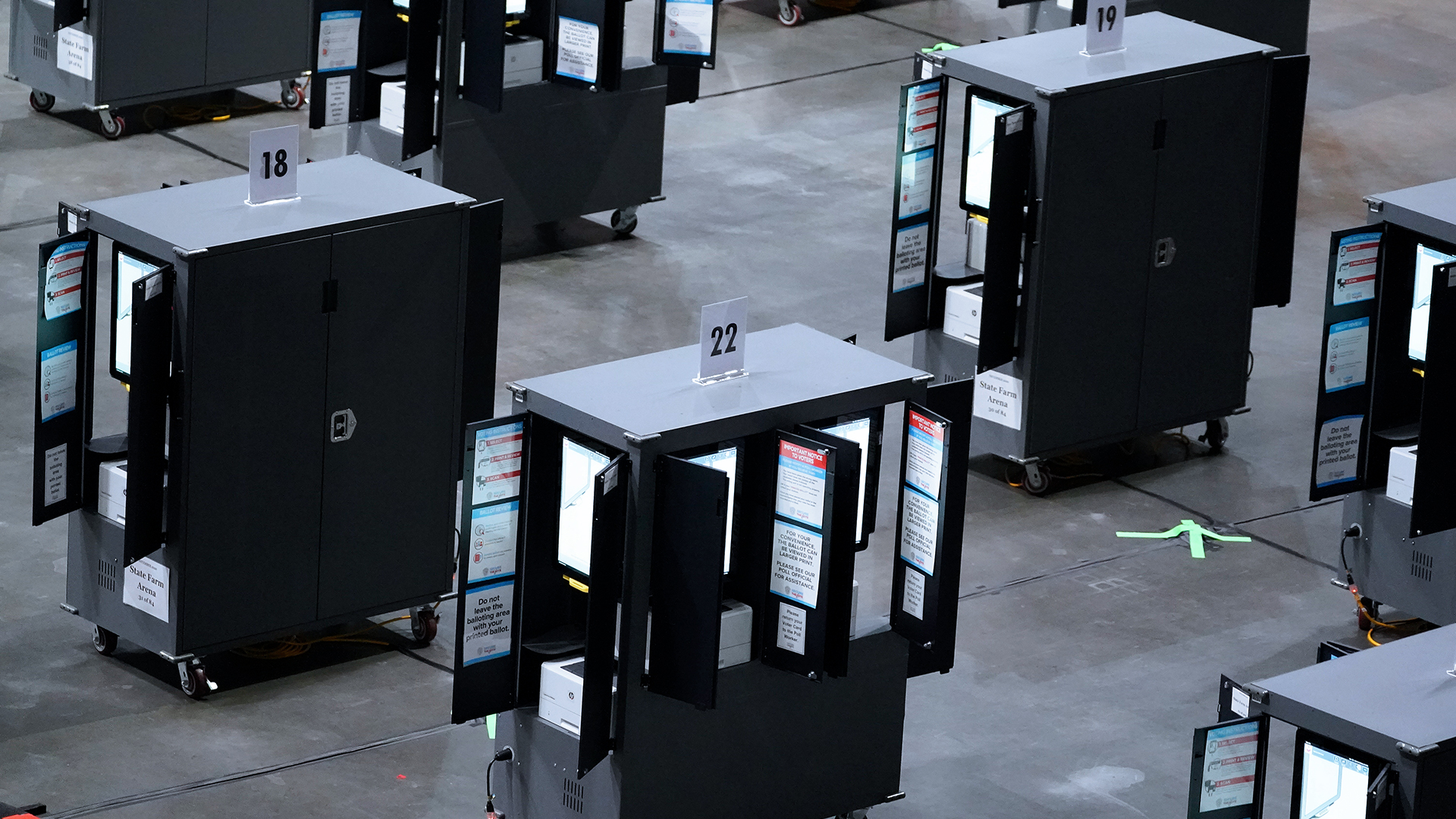
From the equipment in your local polling place, to high-level threat assessments from America’s top cyber-command, a coordinated effort is underway to protect the 2022 elections.
Chris Krebs, former head of the Cybersecurity and Infrastructure Security Agency (CISA), recently tweeted his four main election concerns. They include: continued efforts to de-legitimize the 2020 election, threats against poll workers, radicalized poll workers as insider threats, and foreign actors exploiting domestic narratives.
So, consistent with the CISA/FBI alerts, my great concerns with the 22 election center on:
1) continued efforts to delegitimize 2020 election
2) continued threats against poll workers
3) radicalized poll workers as insider threats
4) foreign actors exploiting domestic narratives— Chris Krebs (@C_C_Krebs) October 7, 2022
Krebs expanded on the insider threats issue recently to CBS News.
“We’re seeing actual election workers that have been swept up in the continued efforts to de-legitimize the 2020 election, and now they’re on the inside. They’re posing a risk we’ve seen in Mesa County, Colorado, Coffee County, Georgia, Antrim County, Michigan, where workers have allowed access by unauthorized people into the system in access to equipment,” Krebs said.
Some state officials point out that while these breaches are serious, they don’t necessarily jeopardize the entire system. They do, however, undermine public confidence, so officials hope to limit the threat by allowing fewer people access to election equipment.
Earlier this month, the FBI and CISA issued a warning about a more familiar threat: foreign interference. The alert, stating it’s “likely” that foreign actors will intensify attempts to influence the midterms by spreading disinformation.
“Plagiarizing domestic issues and driving wedges into the discourse here in the U.S., probably not manufacturing new narratives or anything like that, but instead really hitting on the issues that we’re already talking about here and just making them that much more heated,” Krebs told CBS News.
The main issue those adversaries are focusing on is that the American election process can’t be trusted, spreading claims about compromised election infrastructure or the hacking of voter information.
In Maricopa County, AZ., the country’s second largest voting jurisdiction, election officials are working to head off false election information, by keeping the public informed.
“Everything from an enhanced ballot tracking system, to a redesigned website, to people who can produce videos, to expanded social media presence, to doing more community outreach events, to making more info-graphics, to writing more explanations,” county recorder, Stephen Richer, told CBN News.
Richer says showing people how the election process works is one of the best ways to rovide confidence their vote is secure.
“Showing Republicans, Democrats, Independents, Libertarians, working together. Showing us a highly professionalized system that then couples with people who are working for just a month out of the year, who might just might be your neighbors. That it’s a system that has checks every step, it’s a system that is documented at every step. It’s a system that has no one fail point. It’s a system that would be incredibly hard to manipulate,” Richer said.
Still, he says he’s alarmed at the number of people who don’t care to seek out the truth. A recent Axios Poll found that nearly four out of 10 Republicans and one in four Democrats say they’ll blame election fraud if their party doesn’t win control of Congress.
https://www.axios.com/2022/10/10/two-americas-index-election-fraud
In 2020, fraud allegations led to cases of violence against election officials and volunteers, with threats pouring in ever since. The Justice Department reports investigating more than 1,000 messages sent to election workers over the last two years, including more than 100 that could warrant prosecution.
“Some of the threats are real–’I hope somebody hangs you, I’m gonna put a bullet in your head,’ that sort of thing. So it’s unnerving, it’s unnerving,” CISA’s election chief, Kim Wyman, told CBS.
Ahead of the 2022 midterms, protection of these workers is a major concern and a top priority.
“We’ve done everything from put up new fences, to bring in more security personnel to have more cameras to tighter controls on badge access,” said Richer.
In Colorado, a new law prohibits firearms in polling places, or within 100 feet of a ballot drop box. In Flagstaff, AZ., one election office has installed bulletproof glass, and Kevlar fortified walls will protect an election office in Tallahassee, FL.
The federal government has also offered various training to state and local officials in an effort to avoid violence at the polls.
Dawn Goeb has been a poll worker in Virginia for the last five years. This year her training packet included several pages on what to do if she’s threatened. Still, she sees her role as a duty.
“The threats wouldn’t keep me from doing it because I get very patriotic about voting,” Goeb told CBN News.
States going through audits, recounts, and election disputes in 2020 have received the largest number of threats against officials. The FBI believes the same will be true following the midterms.
These threats against election workers are also leading to significant turnover, which could exacerbate the problem of insider threats.
The remainder of this article is available in its entirety at CBN